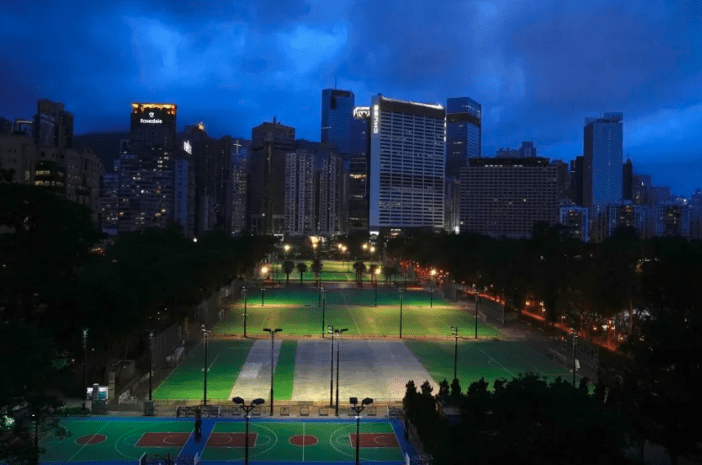Sept. 21, Robert Lawson, director of the Bridwell Institute for Economic Freedom at the SMU Dallas Cox School of Business, for a commentary about Hong Kong’s slide from the top spot on the Economic Freedom Index. Published in the Orange County Register under the heading A blow to liberty: Hong Kong is no longer No. 1 in economic freedom: https://tinyurl.com/54rya375
In the late 1980s at the invitation of Milton Friedman and Michael Walker of the Fraser Institute in Canada, I became involved in a project to measure economic freedom. The resulting Economic Freedom of the World (EFW) index, published annually since 1996, provides economic freedom ratings for up to 165 countries and jurisdictions as far back as 1970. In each and every published edition of the EFW index, Hong Kong had been rated as the most economically free economy – that is, until now. The newly released EFW index has downgraded Hong Kong to second place with Singapore now taking top honors.
Hong Kong’s five-decade reign as the most economically free jurisdiction in the EFW index was no surprise to those of us compiling the data. We remember watching Milton and Rose Friedman’s Free To Choose series on PBS in the 1980s that celebrated the territory’s economic freedoms, and the data we collected reflected what we saw on the show.
By Robert Lawson
In the late 1980s at the invitation of Milton Friedman and Michael Walker of the Fraser Institute in Canada, I became involved in a project to measure economic freedom. The resulting Economic Freedom of the World (EFW) index, published annually since 1996, provides economic freedom ratings for up to 165 countries and jurisdictions as far back as 1970. In each and every published edition of the EFW index, Hong Kong had been rated as the most economically free economy – that is, until now. The newly released EFW index has downgraded Hong Kong to second place with Singapore now taking top honors.
Hong Kong’s five-decade reign as the most economically free jurisdiction in the EFW index was no surprise to those of us compiling the data. We remember watching Milton and Rose Friedman’s Free To Choose series on PBS in the 1980s that celebrated the territory’s economic freedoms, and the data we collected reflected what we saw on the show. Compared with 40-53% income tax rates in the United States, the top rate in Hong Kong was just 17-25%. Relative to GDP, Hong Kong’s welfare state spent just a fifth of what the US spends. Aligned with the free-trade views of Adam Smith, Hong Kong’s tariffs were literally 0%.
After the Chinese takeover of the territory from the United Kingdom in 1997, little seemed to change in Hong Kong in terms of the EFW index. Taxes and regulations remained low and trade with the rest of the world remained free. Hong Kong’s global-best EFW index score bounced around between 8.9 and 9.3 (out of 10) throughout the 1980s, 1990s, 2000s, and into the 2010s.
Still, many observers worried about China’s longer-term commitment to the “one country, two systems” policy. After Hong Kong businessman Jimmy Lai was forced to sell his Asian clothing business because of his criticisms of Chinese leader Li Peng, Mr. Lai created the Apple Daily media company to advocate for more political freedom in Hong Kong. He was first arrested in 2014 for leading pro-democracy demonstrations, and he began to receive threats and even physical attacks that the Chinese-controlled Hong Kong government appeared to ignore.
We first sounded the alarm in the 2020 edition of the EFW index as a result of the new security law imposed that year by the Chinese government without the consent of Hong Kong’s elected legislative body. The new law features potential sentences of life imprisonment for an open-ended array of speech and thought crimes that the mainland doesn’t like. Mr. Lai was promptly arrested under this law and after a brief show trial, he is now serving a 5-year sentence. Apple Daily’s assets were frozen, and the company is now out of business.
Hong Kong’s EFW index ratings eventually began to reflect the erosion of political and economic freedom. As recently as 2012, the EFW index scored Hong Kong’s government size as the smallest in the world. Now it ranks only the 21st smallest. After having been rated as high as 13th in the world, the security of property rights scores fell to 21st best. Even the business regulation ratings for Hong Kong, which had been the best in the world since the 1980s, slipped to 3rd place. All of these declines were enough to drop Hong Kong’s overall EFW index to 8.55 in the most recent report, allowing Singapore to take a slim overall lead.
Milton and Rose Friedman argued that it is only within a system of economic freedom that political freedoms can be maintained. Losing economic freedom in Hong Kong is bad for the future prosperity of the territory, but equally worrisome it means losing the last hope of keeping what remains of the political and civil liberties Hong Kongers have become accustomed to.


